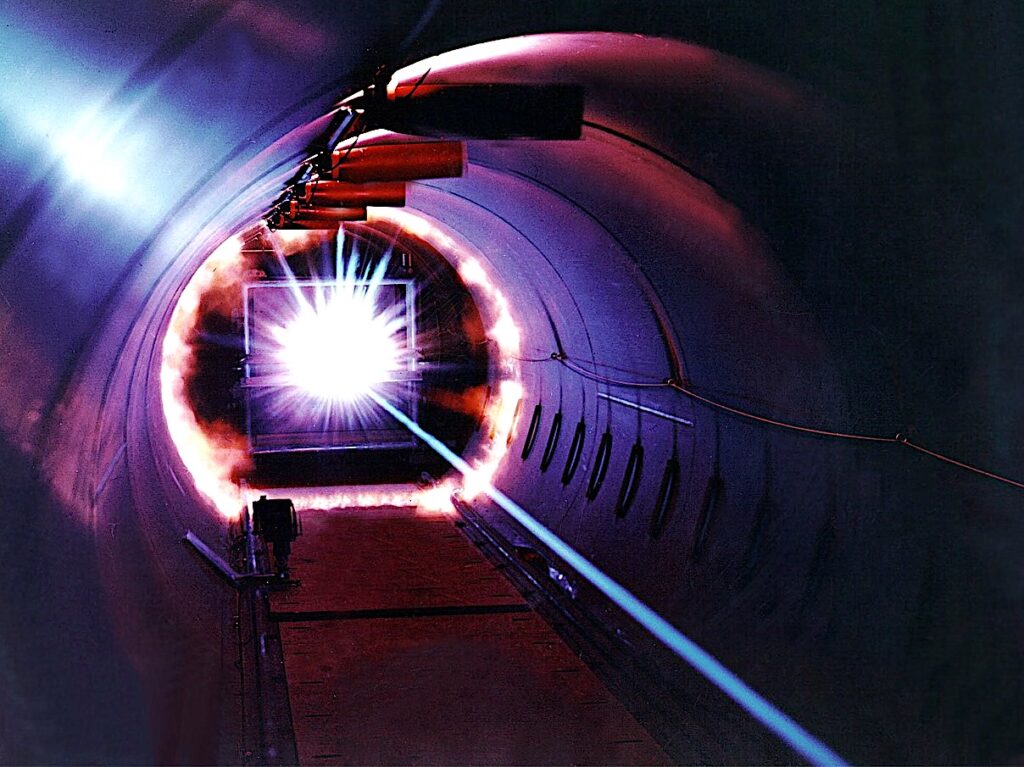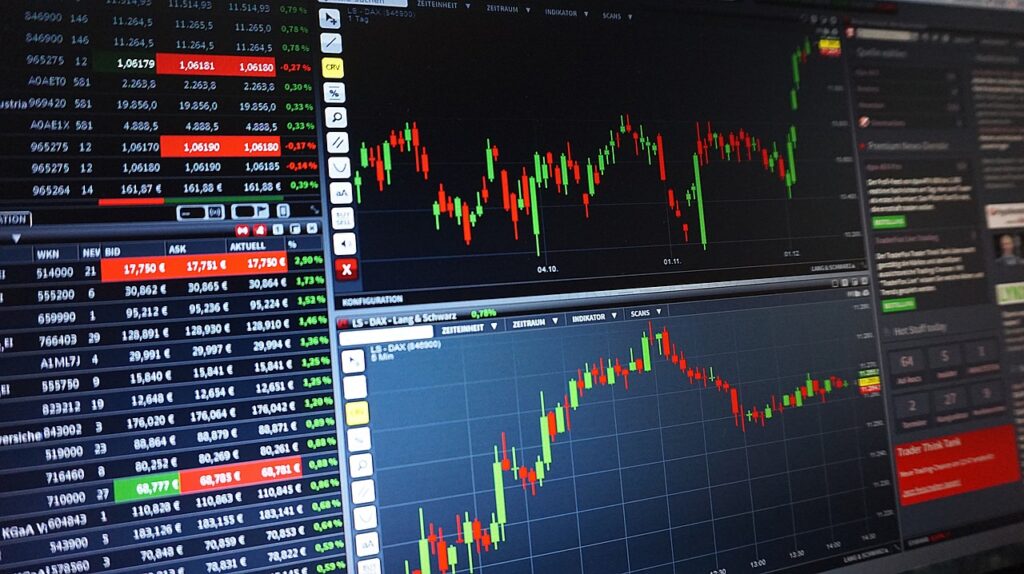High-Frequency Trading has been one of the forces that has turned the financial services industry upside down over the last couple of years. While we often look at the regulatory aspects concerning HFT, it might be worthwhile to acquaint ourselves with the players that define the industry and present you with an overview of the most important firms in the world.
What is High-Frequency Trading?
First, let’s get out of the way what we’re actually talking about: High-Frequency Trading (HFT) can be defined as using an automated trading system that uses complex algorithms to scan markets for even the smallest of opportunities, execute millions of orders at speeds faster than the traditional market participants.
Often they make only a small profit on each transaction but by being super fast and placing vast amounts of orders they nonetheless generate large returns.
HFT has always been controversial: by its adversaries and often in the press as well it has been blamed for reckless and hazardous behaviour that can lead to flash crashes; even regulators do not seem to be entirely sure what to make of it.
Analysis of HFT Activity
Only recently the French regulator AMF has published a detailed analysis of HFT activity that came to the conclusion that while on average, HFTs consume more liquidity than they provide, particularly during periods of high volatility, the report did not indicate that HFT traders were responsible for flash crashes.
Another recent report by the German Bundesbank on the other hand went as far as to say that the behaviour of active and passive HFTs seems to lead to the risk of short periods of increased volatility, which in turn could result in flash events.
Cost Increases Are Affecting HFT Activity
But HFTs aren’t under threat from regulation only. The nature of their business, the need to be faster than the competition and the constant race to shave off vital microseconds have led to an increase in costs that makes business difficult.
Michael Lewis’s famous book on HFT “Flash Boys” from 2014 begins with the story of the secretive construction of a cable that would reduce the time between Chicago and New Jersey by 4 milliseconds. However, some also use microwaves and lasers to gain a speed advantage and to beat the rising competition.
The cost to build a network of microwave towers to send data across the Appalachian mountains, for example, can exceed $10 million and more. To make things worse, volatility in markets, which is essentially the HFT business model, has been low for some time.

No wonder there has been some sort of consolidation process going on for a while in the industry. Some have been acquired or merged with others in order to save costs or generate revenue opportunities as evidenced by last week’s offer of Virtu to buy rival KCG, which itself is the result of a merger between two former HFT firms, Knight Capital and Getco.
Top 20 HFT Firms
However, regardless of what you might think of them, it is still a very successful business model as the following list shows, so let’s have a look at the Top 20 HFT firms (in alphabetical order):
Allston Trading
Founded in 2002 by former CME floor traders, Allston Trading stopped operating in the U.S. stock market in 2015, citing as the reason for the move that the firm wants to focus on more profitable derivatives markets.
Allston is owned by its current and former employees, a retired founder, and long-term institutional backers Sequoia Capital and Francisco Partners.
Citadel Securities
Citadel combines three businesses in one: its alternative asset management business which has more than $25bn in assets under management; Citadel Technologies which offers investment management technology, which is developed internally at Citadel, to third party firms; and lastly Citadel Securities, which is one of the leading market makers in the world, trading products including equities, equity options, and interest rate swaps.
Just to give you an idea, Citadel acts as principal to around $35 billion of equity trades a day. The firm was recently in the press because of a settlement with the SEC in January 2017: Citadel Securities agreed to pay $22.6m with US market regulators to settle charges that claimed it had misled customers over the prices they were getting for some of their deals.
In January 2017 it also had to replace the CEO it had hired only 6 months before the vice-chairman of the whole firm, Peng Zhao. Turbulent times.
DRW Trading
Founded in 1992 by Don Wilson, the co-founder of blockchain firm Digital Asset Holdings and former CME floor trader. Numbers are always hard to come by in the HFT sector, but the profits at its London’s arm surged from £4.5m in 2015 to £11.3m for the year to March 2016.
BrokerTec listed it as one of the Top 10 HFT firms by volume in its review for the period May/June 2015 with a volume of 400 billion trades equivalent to a 5% market share.
The company is currently under pressure because of the CFTC’s lawsuit against Wilson who accused him and his company of “brazen and repeated acts to manipulate” an interest-rate futures market six years ago. The future of DRW may be riding on the outcome as the CFTC is seeking a lifetime trading ban for Wilson and his firm.
Flow Traders
Flow Traders describe themselves as a leading global technology-enabled liquidity provider, specialized in exchange Traded Products (eTPs). 346 employees cover trading desks in Europe, the Americas and Asia to provide liquidity across all major exchanges, globally, 24 hours a day.
Founded in 2004, it managed to make €250 million in net trading income down from €304 million the year before. Profits for 2016 stood at €91 million as opposed to €128 million in 2015.
GSA Capital Partners
The Mayfair based Hedge Fund GSA Capital was originally formed in 2001 as the Global Statistical Arbitrage Group at Deutsche Bank. Led by Jonathan Hiscock, Deutsche’s former prop trader, it spun off to become GSA Capital in 2006. In 2015 GSA increased profits by 25% to £144.2m ($176m) according to the latest available accounts mostly thanks to the group’s four data-driven funds surged in value.
Hudson River Trading
Hudson River Trading presents itself as the rather unusual type in the group of HFT firms with its culture that is more like that of a software firm, which is emphasized by its slogan “Built by coders. Led by coders.”
The firm says it brings a scientific approach to trading financial products, which in turn is underlined by the fact that many of its staff are mathematicians, computer scientists, statisticians, physicists and engineers.
But that’s not the end to the peculiarities in comparison to the rest of the industry: Typically, HFT firms try to avoid taking risk holding positions only for very brief periods if at all and are said to participate largely in dark pools.
Hudson River says it is different as it holds about 25% of its trading capital, while its average holding time is apparently about five minutes as opposed to the sub-second times seen at other for other HFT firms; as for dark pools, Hudson River says that less than 1% of its trading is done on these private trading venues.
IMC Financial Markets

IMC Financial Markets, one of the world’s most active proprietary trading firms and a key market maker in various products listed on exchanges throughout the world, was founded in 1989 in Amsterdam as International Marketmakers Combination.
According to the release of its annual profits and trading income for 2015, the trading income rose 12% to €587 million. The net profit rose by the same percentage to €185 million. That’s €20 million more than in 2014.
Jump Trading
Founded in 1999 by two former Chicago floor traders, Paul Gurinas and Bill DiSomma began trading from London in 2009.
In 2015, revenues increased from $97.1 million in 2014 to $119 million, while the company’s post-tax profits surged from $24.8 million to $36 million, according to accounts filed with the YUK Companies House in October last year.
KCG
KCG is the result of the merger between GETCO and Knight Capital in 2013 after the latter in August 2012 lost over $460 million because a software upgrade caused the company to buy shares it wasn’t instructed to by its clients and force the firm to be sold.
KCG is now subject to a takeover bid itself from industry rivals Virtu, which offers to buy it for about $1.3 billion. As for the numbers, KCG Holdings, listed on NYSE, reported consolidated earnings of $196.2 million, or $2.47 per diluted share, for the fourth quarter of 2016.
However, included in the fourth quarter pre-tax earnings of $309.9 million is a pre-tax gain of $331.0 million from the sales of substantially all shares of Bats Global Markets owned by KCG.
Maven Securities
Founded in London in 2011, the Maven Group consist of its prop business Maven Securities and the hedge fund MVN Asset Management, which launched in 2015. It employs over 80 people in London and Hong Kong but is registered in Malta.
The estimated sales volume is $116 million and its London Maven London Securities Holding Limited reported for the year ending 30 June 2016 revenue of £6 million and an investment income of £10 million.
Optiver
Optiver started the business more than thirty years ago as a single trader on the floor of Amsterdam’s European Options Exchange. Today it is a global electronic market maker, with offices in Amsterdam, Sydney, Chicago, and Shanghai.
For 2015, Optiver reported a net profit of €395 million, which is a 60% rise compared to its 2014 result of €247 million. The result in 2015 from all operating activities was €502 million as opposed to €330 million in 2014.
Quantlab Financial
Based in Houston with offices in Boston, San Francisco and London, Quantlab Financial won more than $12 million in damages after it had accused rival firm SXP Analytics of having stolen a high-frequency trading code, a case that started more than ten years ago when the two Ukrainian founders of SXP worked at Quantlab.
The firm also reached an additional $28.5 million settlement with three other ex-employees.
Quantlab itself was founded in 1998 as a hedge fund and the court trial revealed that in 2015 its HFT activities accounted for 3-5 per cent of daily trading volume on global stock and commodities exchanges where the company actively trades. This week, it announced it would buy the trading operations of rival Teza.
RSJ Algorithmic Trading
Little known, but one of the leading, if not the biggest trader, of short sterling and long gilt futures contracts, RSJ was founded in 1994 and has been using trading algorithms since 2002.
Headquartered in Prague, the firm, according to a Bloomberg report three years ago, traded products worth a notional $106 trillion on an annual basis.
Its founder, Karel Janeček, a Czech math genius, practically retired from the firm to focus on other projects such as political reform and anti-corruption campaigns

Sun Trading
Sun Trading is a privately held proprietary trading firm with offices in Chicago, New York and London. Sun Trading has more than 100 employees in the U.S. and over 20 employees in London.
The latter work at its UK arm Sun Trading International, which reported a $28 million turnover resulting in a $1.5 million loss for 2015, according to accounts published in October 2016.
Teza
Teza Group is a science and technology-driven global quantitative trading firm based in Chicago.
With a volume of 905 billion trades and an 11% market share, Teza was part of the review published by BrokerTec for the period May/June 2015 and no. 3 on the list of the Top 10 HFT firms by volume.
However, in November 2016 the firm announced it would pull out of HFT this week and sold its HFT business to Quantlab Financial for a sum rumoured to be between $20-30 million.
Tower Research Capital / Spire-X
Tower and its subsidiaries employ over 400 people worldwide, including over 200 trading team members, 70 developers, and 45 systems administrators. In addition to Spire-X it also owns Latour, a US-Broker dealer.
Spire posted revenues of £140.2 million for 2015, up from £94.6 million in 2014, according to a recent Companies House filing.
Its post-tax profits fell to £10.4 million from £15 million. BrokerTec listed Spire-X at no. 6 on its list of the Top 10 HFT firms by volume, which reviewed the period May/June 2015.
Spire-X reportedly traded a volume of 400 billion trades equivalent to a 7% market share.
Tradebot Systems
Tradebot’s slogan is “Beat Wall Street from Kansas City”, where it was founded by Dave Cummings in 1999.
In 2008, he told students at a speech that his firm typically held stocks for 11 seconds and that Tradebot, one of the biggest high-frequency traders around, had not had a losing day in four years.
Cummings also founded BATS Global Markets in 2005, left it in 2007 and returned as CEO of Tradebot. In 2014, New York attorney general Eric Schneiderman accused Barclays of hiding the fact that Tradebot was one of the largest participants in their dark pool, though Tradebot was not accused of any wrongdoing.
Two Sigma Investments
Founded in 2001 by John Overdeck, David Siegel and Mark Pickard, Two Sigma Investments is headquartered in NY with offices in Houston, London, and Hong Kong.
It consists of a hedge fund business, a VC arm that focuses on investments in data science, AI and machine learning, while Two Sigma Securities is a high-frequency broker-dealer.
Its London arm Two Sigma International had an annual turnover of £6.85 million and made £570.000 in profits in 2015.
Virtu Financial
Virtu is one of the most successful companies in the history of electronic trading. Apparently, in the period between 2009 and 2014, it lost money on only one day.
In 2016 it generated a net income of $158.5million with total revenues of $702 million.
Founded in 2008 by Vincent Viola and Douglas Cifu, Virtu in 2011 merged with proprietary trading firm Madison Tyler, which Viola had co-founded with David Salomon, and on April 15, 2015, Virtu Financial successfully priced its IPO, which it initially planned to do in 2014 but had to postpone after HFT got under regulatory scrutiny.
Last week, Virtu made a preliminary, non-binding proposal to acquire its rival KCG.
XR Trading
XR Trading is a proprietary trading firm since 2002 as a fixed income trader and then built on this to expand its business to other asset classes.
Founded by Matt Haraburda, who started his career working for the Chicago Board of Trade.
According to the BrokerTec review for the period May/June 2015 XR Trading was no. 7 on the list of the Top 10 HFT firms by volume with a volume of 554 billion trades, which is the equivalent of a 7% market share.
Did we miss anyone? What are your thoughts on our selection? Tell us at info@planetcompliance.com
